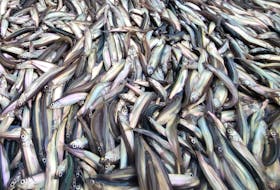Re: “Did Mi’kmaq surrender?” (March 16 opinion piece by Leo Deveau and Len Canfield). They did not!
I want to correct a few factual errors that were included in their article.
The Mi’kmaq did not surrender; they entered into Peace and Friendship Treaties with the British to end a war that had lasted for approximately 130 years, with the expectation that the British would honour their part of the bargain.

The British did not. When the Mi’kmaq were suitably reduced to a state of near starvation, the British walked away from their treaty obligations. The situation got so bad that in the conclusion of his 1843 Indian Commissioner’s report to the governor, Joseph Howe lamented: “I trust, however, that should your Excellency not be satisfied with the results of these first experiments, the blame may be laid upon the Commissioner, rather than be charged upon the capacity, or urged against the claims of a people, for whose many good qualities a more extended intercourse has only increased my respect, and who have, if not by Treaty, at least by all the ties of humanity, a claim upon the Government of the Country, which nothing but their entire extinction, or their elevation to a more permanent, and happy position in the scale of Society, can ever entirely discharge.”
Now for the scalp proclamations, there were three.
On Oct. 19, 1744, the government of Massachusetts, responding to a request from Nova Scotia’s Governor Jean Paul Mascarene, declared war upon the Mi’kmaq and Maliseet Nations: “.... and produce his scalp in evidence of his death, the sum of one hundred pounds in bills of credit of this Province of New England, and the sum of one hundred and five pounds for any male of the like age who shall be taken captive.
“And the sum of fifty pounds in said bills for women, and for children under the age of twelve years killed in fight, and fifty-five pounds for such of them as shall be taken prisoners together with the plunder. No payment shall be made for killing or taking captive any of the said Indians, until proof thereof be made to the acceptance of the Government and Council. November 2, 1744.”
Capt. John Gorham’s Rangers were sent to the province to collect scalps. Later, he and William Shirley had a dispute about late payment for the scalps he and his men had collected.
On Oct. 1, 1749 Nova Scotia Governor Edward Cornwallis met with his military government and it was decided, in Cornwallis’s words, that “it would be better to root the Micmac out of the peninsula decisively and forever.”
That it was meant to include women and children, and not just for warriors as Deveau and Canfield stated, is evidenced by the following. The end of the minutes for that meeting: “That, a reward of ten Guineas be granted for every Indian Micmac taken, or killed.”
Also, the end of the Governor’s Oct. 2 Proclamation does “promise a reward of ten Guineas for every Indian Micmac taken or killed, to be paid upon producing such Savage taken or his scalp (as in the custom of British America) if killed to the Officer Commanding.”
In 1750, the bounty was increased to 50 Guineas and three British militias were involved in the scalp harvest.
If one can deduce that the Cornwallis scalp proclamation was for warriors only, one would need a vivid imagination!
In 1756, Governor Charles Lawrence and his government issued a proclamation for the scalps of Mi’kmaq warriors: “And, we do hereby promise, by and with the advice and consent of His Majesty’s Council, a reward of 30£ for every male Indian Prisoner, above the age of sixteen years, brought in alive; or for a scalp of such male Indian ....”
A bounty was also paid for women and children brought in alive.
The bottom line: The Mi’kmaq were the invaded the British were the invaders.
I personally abhor war and the horrific human suffering and misery involved. I had a brother who was a veteran of the Korean War, and because of what he was involved in, he came home mentally damaged to the extent that he died of alcohol abuse when he was only 49.
“War is wretched, beyond description, and only a fool or fraud sentimentalize its cruel reality.”
- Senator John McCain, May 6, 1999
Daniel N. Paul is a Mi’kmaw Saqmawiey (Eldering) and historian.









